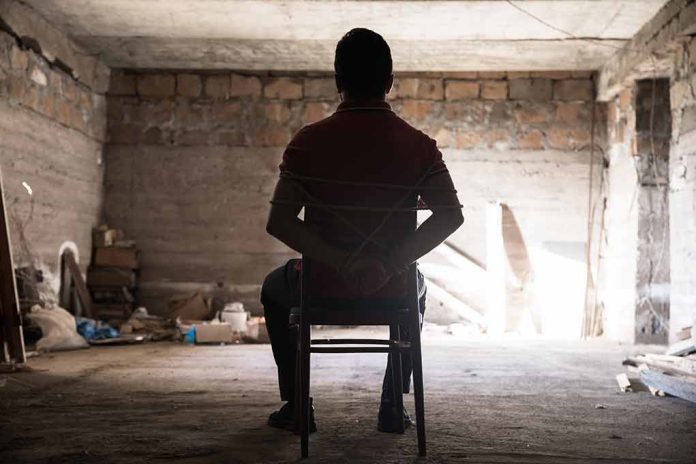
Hamas’s unexpected halt on hostage release amid Israel tensions bears significant geopolitical implications as former President Trump’s sharp condemnation raises stakes.
Key Takeaways
- Hamas postpones hostage release, blaming Israeli ceasefire violations.
- Trump’s sharp critique likens hostages’ condition to Holocaust survivors.
- The ongoing ceasefire agreement involves a complex prisoner exchange.
- Trump threatens severe consequences if hostages aren’t freed swiftly.
- Diplomatic tensions rise with various countries urging ceasefire extension.
Hamas Suspends Hostage Release
Hamas, backed by Iran, unexpectedly suspended the planned release of additional hostages, citing alleged Israeli breaches of a ceasefire agreement. This decision affects the release of three hostages and raises questions about the agreement’s future. They accused Israel of violating the ceasefire by restricting humanitarian aid into Gaza. This suspension challenges the efforts to manage diplomatic and military engagement in the volatile region.
Former President Donald Trump’s criticisms of Hamas further inflamed tensions, focusing on the mistreatment of released captives such as Eli Sharabi, Ohad Ben Ami, and Or Levy. Comparisons were drawn between their condition and Holocaust survivors, escalating international focus on the dire humanitarian aspects amid political negotiations.
🇮🇱 🇵🇸 Israel Cabinet approves Gaza ceasefire, hostage release deal
Ceasefire set to begin Sunday, halting Gaza war, enabling hostage exchange
Deal includes prisoner release by both sides, Israel lists 95 Palestinians to be freed
Truce to take effect on eve of Trump's… https://t.co/9GrCQHSoVl pic.twitter.com/6zKrDhk7cH
— WE News English (@WENewsEnglish) January 18, 2025
Ceasefire in Question
The ceasefire, originally designed to facilitate hostage exchanges, faced significant challenges as both parties accuse each other of violations. Hamas insists on Israeli accountability, while Israel demands the immediate release of hostages. The ceasefire agreement aimed to release hostages in exchange for Palestinian prisoners, a process now under significant strain due to the recent suspension.
“Trump must remember there is an agreement that must be respected by both parties. This is the only way to bring back prisoners,” Hamas spokesman Sami Abu Zuhri said.
Tensions rose as Trump applied pressure on Jordan to accept Palestinian refugees, threatening to withhold U.S. aid. This comes amid ongoing international discussions to stabilize the situation and extend the ceasefire. Egypt and other Arab countries rejected Trump’s relocation plan, underscoring the need for a political solution to the ongoing conflict.
International Pressure and Controversy
Amidst international concern and protests in Israel demanding hostage returns, various nations, including UN representatives, advocate for a ceasefire extension. Recent protests accused the Israeli government of mishandling hostage negotiations, adding domestic pressure on Israel’s administration to resolve the crisis.
As the Israeli security cabinet discusses the next phase, military preparations signal potential escalations. The situation emphasizes the fragility of regional stability and the intricate intertwining of humanitarian, political, and military dimensions in any potential resolution efforts.
Sources:
- Trump aides defend Gaza takeover proposal but walk back some elements | Reuters
- Middle East latest: Hamas brushes off Trump and says all parties must commit to ceasefire | AP News
- What do Hamas delay and Trump threat mean for Gaza ceasefire deal? | Israel-Gaza war | The Guardian
- Hamas Makes an Announcement About the Freedom of Future Hostages



